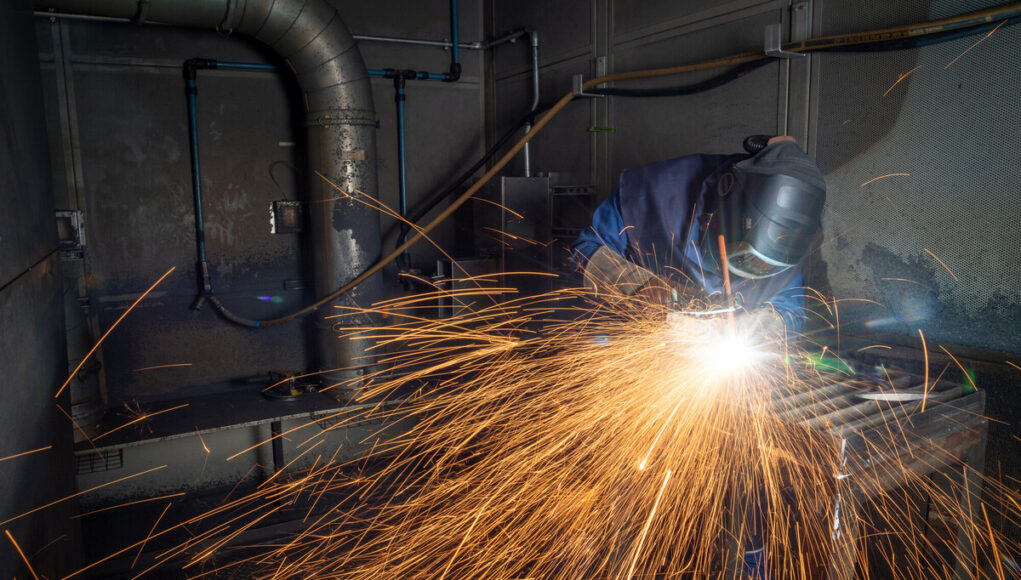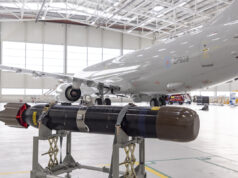Greens MSP Ross Greer has sparked controversy by criticising a £360,000 Scottish Enterprise grant to BAE Systems for training Clyde shipbuilders, highlighting a confusing position on arms trade ethics.
While condemning the grant as supporting an arms dealer, Greer’s stance appears contradictory given the company’s significant contributions to Ukraine’s defence and the grant’s focus on local job creation and economic development.
As part of this, Greer has criticised Scottish Enterprise’s human rights checks as inadequate, describing them as “nothing more than a box-ticking exercise.”
This article is the opinion of the author and not necessarily that of the UK Defence Journal. If you would like to submit your own article on this topic or any other, please see our submission guidelines.
He expressed concern that a major arms dealer like BAE Systems, which he claims is involved in military actions contributing to genocide, can pass these checks.
Greer has called for a complete overhaul of the assessment system, questioning the ethical alignment of funding such companies while promoting moral leadership and calling for a ceasefire from the Scottish Government.
Misleading Claims About the BAE Systems Grant
In short, this article addresses the claim that BAE Systems received a Scottish Enterprise grant on 4 April, the day after Humza Yousaf wrote to the UK Government, calling for an end to arms sales to Israel, as it is misleading.
Scottish Enterprise awarded BAE Systems a £360,000 grant on 4 April 2024. The timing of this grant has led to misconceptions and criticisms, suggesting a conflict between Scottish Enterprise’s actions and the statements made by then-First Minister Humza Yousaf.
Yousaf had indeed written to the UK Government on 3 April 2024, calling for an end to arms sales to Israel. However, it is crucial to understand that the grant to BAE Systems was designated explicitly for training staff in “new ways of constructing naval ships on the Clyde.”
Supporting Local Industry and Job Creation
This funding is part of a broader £300 million investment in shipbuilding on the Clyde, including constructing a £12 million shipbuilding academy in Glasgow. The grant aims to support local industry and job creation within Scotland. It is entirely focused on shipbuilding activities, not on the production of munitions or weaponry used in the Middle East conflict.
Paul Sweeney MSP, who previously worked at BAE Systems’ shipyards on the Clyde and subsequently as an Account Manager at Scottish Enterprise before being elected to Parliament, where he now convenes the Cross Party Group on Maritime and Shipbuilding, remarked on the importance of this grant:
“We are currently seeing the largest investment programme in the Clyde shipbuilding industry during my lifetime, with the construction of the massive New Assembly Hall at Govan shipyard on track for completion next year, whilst the Applied Shipbuilding Academy at Scotstoun shipyard that is due to open later this year will provide training for a shipbuilding workforce of almost 4,500 people, including nearly 700 apprentices.
“This new academy will not just upskill the existing workforce in Glasgow but will become a national centre of excellence for shipbuilding skills development. I am delighted that Scottish Enterprise has supported this visionary project with a grant of £360,000. It is precisely the investment that the state should be making to support the growth of what remains the largest manufacturing industry in the West of Scotland and the country’s biggest employer of apprentices, with 300 apprentices and graduates joining the Clydeside workforce this year alone.
“Glasgow’s shipyards are currently constructing Type 26 frigates for the UK Royal Navy as well as supporting similar naval shipbuilding programmes in Canada and Australia, so it is disingenuous of the Scottish Greens to claim that this grant supports the export of military equipment to countries with poor human rights records or who may be actively involved in conflict. Unless of course it is now the policy of the Scottish Greens to undermine our national security by abolishing the country’s navy and shutting down our shipyards, destroying Glasgow’s most iconic industry and thousands of skilled jobs, then I would invite them to clarify their view on continuing state support for the shipbuilding industry, as their current position appears to be ridiculously absurd.”
BAE Systems’ Support for Ukraine
It is odd that a Scottish political party objects to a grant supporting Scottish shipbuilding, especially since the grant has no involvement with Israel, and BAE Systems contributes more to Ukraine’s defence than to Israel.
BAE Systems is actually heavily involved in supporting efforts in Ukraine. The company supplies military equipment to Ukraine, contributing to defence efforts against the Russian invasion. This highlights that, actually, a significant aspect of BAE’s operations aligns with Greer’s support for Ukraine. The Scottish Government and Scottish Enterprise also maintain that their funding does not support munitions or weaponry related to the Gaza conflict.
Former First Minister Humza Yousaf has consistently advocated for a ceasefire and an end to arms sales to Israel. Critics argue that funding companies like BAE Systems indirectly supports the conflict, undermining Yousaf’s stance. However, the grant provided by Scottish Enterprise is focused on local economic development and job creation in the shipbuilding sector.
Contradictory Stance on Arms Exports
Scottish Greens MSP, Ross Greer, said, “If a multi-billion-pound arms dealer whose weapons are being used to commit a genocide can pass your human rights test, it’s not worth the paper it’s written on. We will be pushing for a complete overhaul of this assessment system,” Greer added. “Many will find it utterly shocking and inexplicable that, at the same time the then-first minister was calling for an end to the violence, his government’s enterprise agency was funding the very companies fuelling it.”
The controversy over the £360,000 grant to BAE Systems revolves around ethical considerations and the adequacy of human rights checks. While the grant supports local shipbuilding development, it is essential to distinguish between the intended use of the funds and the company’s broader activities. The grant has no links to the production of weaponry used in the Middle East and is focused on supporting the Scottish economy.
In a related development, the Scottish Greens are planning to revise their “blanket” opposition to arms exports following Vladimir Putin’s illegal invasion of Ukraine. Party MSP Ross Greer is spearheading efforts to update their defence policy to support Ukraine’s right to “shoot down” Russian jets. Historically opposed to NATO and nuclear weapons, the Greens, as previous junior partners in the Scottish Government, have maintained a hostile stance towards the arms trade. However, Russia’s actions in Ukraine have compelled the Greens to reconsider their approach to assisting countries under attack.
The hypocrisy of the Scottish Greens’ stance becomes even more apparent when examining their policy and Ross Greer’s statements. The Scottish Greens state, “Green MSPs would support measures to curtail the global arms trade by cutting Scottish Enterprise or Scottish Development International support to enterprises involved in arms sales to human rights abusers. We would encourage pension funds to divest away from these enterprises and we would push for a Just Transition Fund to help defence sector workers retrain for careers in other areas such as renewables or transportation.”
Yet, in a speech, Greer said:
“Nonsense claims about the influence of the Azov Battalion are being used by Putin’s useful idiots here and elsewhere to undermine public support for Ukraine. And given how long this war is sadly likely to last, we cannot give an inch to those seeking to undermine our solidarity. Those same people often disingenuously claim that some kind of compromise needs reached – pretending that their only interest is in a peaceful end to the war. But what would their compromise look like? Compromise implies giving Russia something it didn’t have a year ago, something it could walk away with.
The Ukrainians have rightly made clear that they will not cede an inch of their territory to an invading power. And what right do outside players have to tell Ukrainian citizens that the price of peace is their continuing to live under an occupying force which tortures and massacres them – which hangs civilian protestors in town squares?
Peace is the absence of violence and the presence of justice. There would be neither of those for Ukrainians under Russian occupation. Beyond supplying the equipment needed by Ukraine’s armed forces – which the Scottish Greens support – European nations must step up our sanctions efforts and dramatically speed up our transition away from fossil fuels, robbing Putin of the geo-political weapon he has wielded for twenty years.
Greer’s speech continues to highlight the Scottish Greens’ support for Ukraine:
“The UK may have only sourced a small fraction of its gas from Russia before this war, but companies here have played a key role in supporting Russia’s oil and gas sector. I hope others were as horrified as I was by the revelation that Scottish-based Baker Hughes continued shipping equipment to Russia as late as June, months after the war began.
And I welcome the Deputy First Minister’s robust response to my request that the Scottish Government withhold grant support to a company still contributing, however indirectly, to the Russian war machine. The people of Scotland should be proud of the solidarity shown to our Ukrainian friends. We have welcomed a number of Ukrainian refugees far in excess of our share of the UK population. Huge sums of money and tonnes of supplies have been collected. And the Scottish Government is straining its limited powers in this area to make the sanctions and economic pressure on Russia as effective as possible.
It is easy for us to take freedom for granted. There is no serious threat to our own and hasn’t been for decades. But 30 years after the end of the Cold War and what was then claimed by some to be the irreversible forward march of democracy, we can see on our own continent how fragile freedom really is. However peripheral our role is, history will judge all of us on what we did to defend freedom in Ukraine. This afternoon we will unanimously declare once again that Scotland’s role is to stand in solidarity with the Ukrainian people and to do all within our power to aid their victory.”
This clear support for military aid to Ukraine contradicts the Scottish Greens’ stated policy against supporting enterprises involved in the arms trade. Greer’s vocal support for providing military equipment to Ukraine stands in stark contrast to the party’s opposition to funding BAE Systems for local shipbuilding, which indirectly supports the same defence efforts in Ukraine.
This contradiction underscores the inconsistency and hypocrisy in the Scottish Greens’ policy stance and their critique of the BAE Systems grant. They criticise a grant that supports the Scottish economy and shipbuilding industry while simultaneously endorsing military aid to Ukraine, demonstrating a policy that makes little sense given the actual use of the funds and the broader context of BAE Systems’ operations.














The green🤡 party is an out of reality, Pacifist party!
On behalf of Scotland, I humbly apologise for this utter excuse of a Member Of the Scottish Parliament. He was elected by what passes for a proportional representation system in my country where total excuse of a politician.
He will hopefully be out of a job in the 2026 Scottish Elections.
What really do you expect from the sanctimonious green party other than sheer hypocrisy. Same situation in NZ. And I’m talking as someone who is green.
The greens are nothing but belligerent arseholes, elected by proportional representation,pathetic crap live in a fxxxxxxg twilight zone,they will be gone after the election ,the brain dead fairy and his pc brigade friend will be gone for good ,after they are out, they will demand a recount of the votes ,court action Donald Trump style 😀 😉 👍 😄 😜
It’s April the 1st, every day with this lot.Iis there a vetting process prior too standing as a candidate for the Green party ?.
Bring all the work south of the border… Just a silly idea.
That would shatter any hope of the Greens whacky ideas for Scotland, next they’ll be developing Solar powered submarines